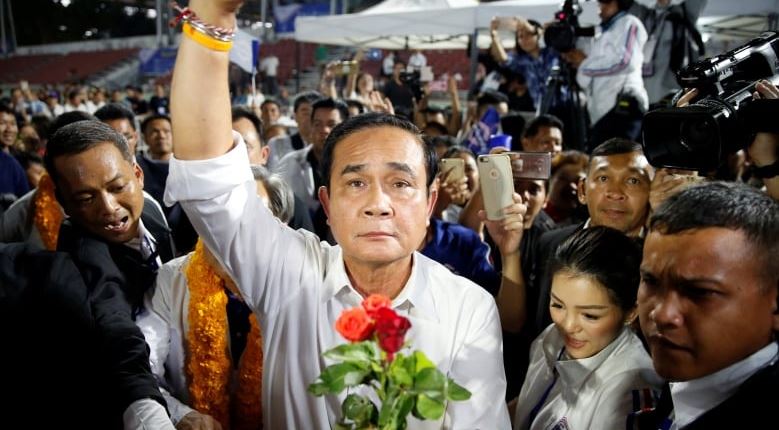Prayuth government won’t last a year, says opposition leader
WAN MUHAMMAD Noor Matha, a former House speaker who now leads an opposition party, sees a gloomy outlook for the new government to be headed by General Prayut Chan-o-cha.
He believes the government will be short-lived.
The veteran Muslim politician, who leads the Prachachart Party, pointed out that the 19-party coalition government headed by Prayut has only a slim majority in the House of Representatives. The weakness is bound to affect stability in the coalition, he said.
“The government may be at risk of losing important votes in the Lower House, or at least failing to form a quorum,” Wan Noor said in an interview.
He believes the new government, in which Prayut will serve as prime minister for the second time, is “weak” because junta-appointed senators will be of no help in swinging vote outcomes, unlike when both Houses in a joint session voted to select the prime minister.
Wan Noor said reports of coalition partners and factions within Prayut’s Phalang Pracharat Party wrestling over Cabinet seats pointed to a further weakness in the government.
“The head of government virtually has no bargaining power. If any coalition member withdraws, the government could collapse immediately. So the prime minister must hang on to everyone that joins his coalition.”
Without the powers he enjoyed as head of the National Council for Peace and Order, Prayut cannot keep coalition partners and MPs completely under his control when the new government takes over, Wan Noor said.
Wan Noor’s Prachachart is a member of the seven-party opposition bloc.
He said yesterday the opposition, as part of its mission to keep the government from duping the public, would set up a working group to hear citizens’ complaints and suggestions.
It would also circulate a petition aimed at amending the Constitution, which he said favours the military junta’s retention of power.
He planned to ask Prayut in Parliament about his role in leading the military coup in May 2014, which overthrew an elected government.
“I remember well what the then-Army chief said on May 22, 2014, when he staged the coup. I will ask him about what he did at that time. He doesn’t deserve to be prime minister today,” Wan Noor said.
Asked to predict the longevity of the incoming government, Wan Noor said it could last a year, perhaps a little longer.
Judging from Thai political history, he said, governments like Prayut’s are typically short-lived.
They have ended in House dissolution or counter-coups in which a pro-government military seized power just to help the premier end an unstable administration rife with infighting among coalition partners.
“But power seizures are not acceptable to the international community,” Wan Noor said.
He urged politicians to avoid giving the military any “excuse” to stage another coup by indulging in corrupt practices.
Corruption has often been cited as the justification for coups in the past.
“Thai democracy still has some flaws, but it takes time for them to be rectified,” he said. “People shouldn’t vote for corrupt and bad candidates. And power outside the system should not be allowed to ‘correct’ the flaws.”




